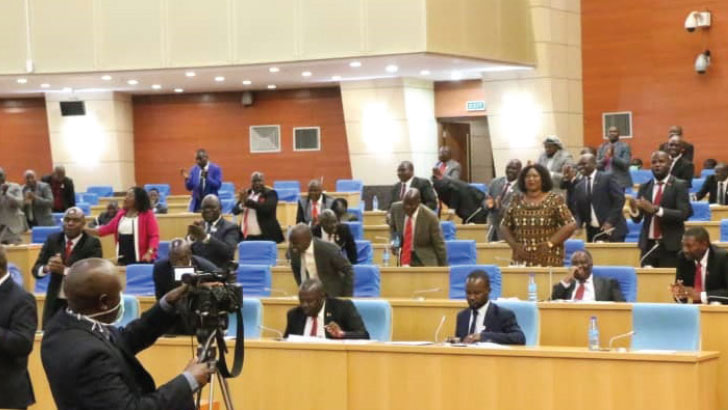Parliament approves removal of VAT on water, cooking oil
There was heated debate in Parliament yesterday between Minister of Finance Sosten Gwengwe and his predecessor Joseph Mwanamvekha over the removal of value added tax (VAT) on some essential commodities, including cooking oil which has been a source of public frustration.
This was after the House had approved the removal of 16.5 percent VAT on cooking oil, tap water and sanitary towels as indicated in the 2022/23 National Budget statement.
However, the debate between the two members of Parliament (MPs) was on whether cooking oil prices will go down after the removal of VAT.
Gwengwe stressed that come the start of the financial year on April 1, prices of the commodities will go down.

But Mwanamvekha, who is the Democratic Progressive Party’s spokesperson on finance in Parliament, argued the prices will not change given macroeconomic fundamentals such as inflation and exchange rates.
He said: “The kwacha has significantly depreciated to the disadvantage of manufacturers of cooking oil who mostly import a bulk of their production materials for cooking oil.”
On her part, United Democratic Front spokesperson Lilian Patel said she did not have technical expertise to argue on whether the prices of cooking oil will go down or not, but that her expectation was that the removal of VAT should reduce the prices.
The Bill attracted more comments from members of the opposition, who were mostly supportive of the removal of VAT.
The former Finance minister more than once indicated that the information he was providing would be better understood by technocrats.
While tabling the VAT (Amendment) Bill, Gwengwe said government had removed VAT on the three essential commodities to cushion the poor from economic hardship since they use these products on daily basis.
Commenting on the passage of the Bill, economist Milward Tobias said based on cost structure analysis the removal of VAT should trigger price reduction.
“Prices should definitely go down because traders collect VAT on behalf of government. There is the price of the item and then there is VAT, so traders already have a price for their item,” he said.






One Comment